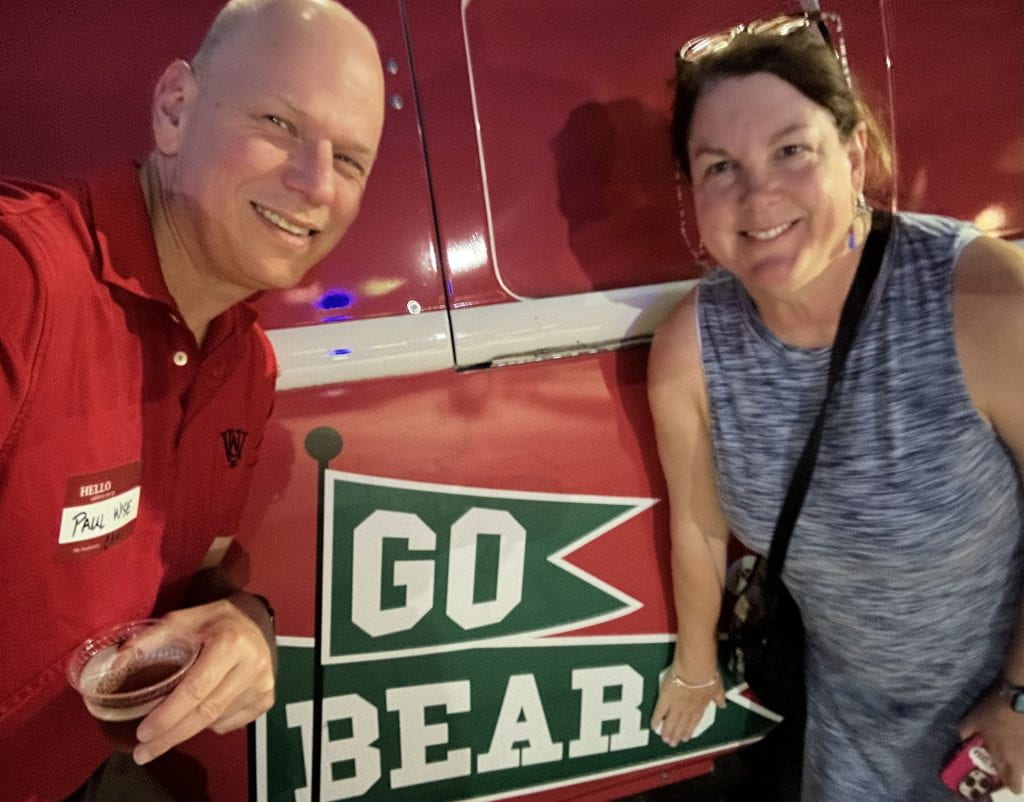
Few things in life are as certain as change. As we get deeper into the new academic year, we are all settling into the changes inherent to the summer-to-fall transition, and not just the fantastic weather this year (from 97 to 67 degrees in one week)! The new interns are adjusting to their tremendous shift from student to responsible physician, clinical residents are acclimating to their promotions and elevated responsibilities, some research residents have gone from the “dirt road” back onto the “super highway” of the clinical realm, and our new research residents are massaging out the whiplash of their downshift onto that dirt road from what may be the toughest year in our residency as a PGY2. The academic calendar provides some anticipation for these changes, but it is nevertheless challenging (and hopefully rewarding!) to take on new roles and responsibilities, as all of us can attest to. As we navigate these adjustments, it is important to keep in mind the benefit of change and the valuable lessons that we can learn from transitions, not the least of which is the opportunity to reflect on past growth as we note others following in our footsteps.
Since stepping into the Vice Chair for Education role this year, I myself have experienced exciting new challenges. For nearly a decade as residency program director, my focus was on moving the residency forward to provide the best possible training program for every resident while being responsive to their recommendations and needs as well as navigating complex external forces (e.g., ACGME rules, EPAs, financial constraints, etc.). Now, as Vice Chair, it is not always easy to translate those experiences and successes to all of the training programs across the Department, from immersion students to residents to fellows to faculty education. This is proving to be a test to balance multiple competing forces and focus on equity of resources while trying to elevate all programs and training experiences beyond what is already exceptional and unique at WashU. This has proven to be a great new opportunity and challenge, but one that will be made easier by the dedicated leaders and members of the Department of Surgery. Of course I owe an enthusiastic debt of gratitude to Dr. Jennifer Yu, the epitome of a selfless surgical educator, who will be stepping into my PD role over the next couple years – another big transition indeed!
Regardless of your new role this year, it is important to give yourself grace as you take on those new responsibilities. Allow for periods of self-reflection and self-care to fully settle in and understand and respond to the inevitable failures and mistakes inherent in change. These are opportunities to grow, to put your best foot forward on the next step in your journey. When feeling uncertain, keep your goals and passions in mind. Looking back at the progress that you have made and the drive and ambitions that got you to today can help frame your change-perspective (and use this wisdom of experience to help advise/mentor those following after you). Just as you can help those “following” you, use those “ahead” of you for support and mentorship, and use your peers around you who are sharing in similar transitions to also provide perspective, support, guidance, and shared understanding. Your peers, mentors and other supporters are vital resources when facing change, especially when that change may be more intimidating or tumultuous. Collaboration and communication are not only integral to our community of surgeons and surgeons-in-training, but to the entirety of our lives.
Remember, it’s going to be okay. Change, though uncomfortable at times, is ultimately an opportunity for growth and renewal. As you continue to mature in your roles, embrace these periods of transition and keep a keen eye out for lessons that can be learned along the way. Change can be unsettling, even scary. Regardless of our level in the surgical “hierarchy”, however, change ultimately helps us to be better. Better learners, better educators and mentors, and better surgeons.
Paul E. Wise, MD
General Surgery Residency Program Director
Vice Chair for Education, Department of Surgery
Washington University in St. Louis School of Medicine